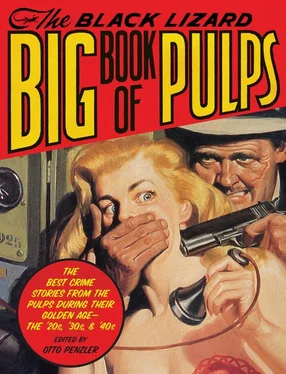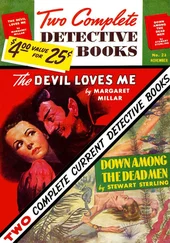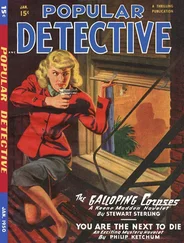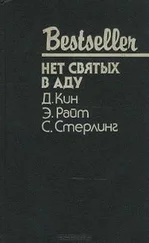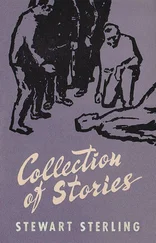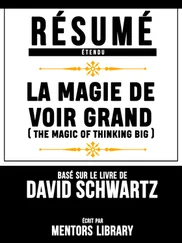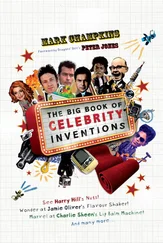He opened the door briskly, and then hesitated, standing in the doorway, holding the door open, turning the knob back and forth with one bony hand. There was no indecision in his face. It was ugly and grim, and its expression was the expression of a man who is remembering something disagreeable.
Tommy Howd, our freckled and snub-nosed office boy, got up from his desk and went to the rail that divided the office.
“Do you—?” Tommy began, and jumped back.
The man had let go the doorknob. He crossed his long arms over his chest, each hand gripping a shoulder. His mouth stretched wide in a yawn that had nothing to do with relaxation. His mouth clicked shut. His lips snarled back from clenched yellow teeth.
“Hell!” he grunted, full of disgust, and pitched down on the floor.
I heaved myself over the rail, stepped across his body, and went out into the corridor.
Four doors away, Agnes Braden, a plump woman of thirty-something who runs a public stenographic establishment, was going into her office.
“Miss Braden!” I called, and she turned, waiting for me to come up. “Did you see the man who just came in our office?”
“Yes.” Curiosity put lights in her green eyes. “A tall man who came up in the elevator with me. Why?”
“Was he alone?”
“Yes. That is, he and I were the only ones who got off at this floor. Why?”
“Did you see anybody close to him?”
“No, though I didn’t notice him in the elevator. Why?”
“Did he act funny?”
“Not that I noticed. Why?”
“Thanks. I’ll drop in and tell you about it later.”
I made a circuit of the corridors on our floor, finding nothing. The raw-boned man was still on the floor when I returned to the office, but he had been turned over on his back. He was as dead as I had thought. The Old Man, who had been examining him, straightened up as I came in. Porter was at the telephone, trying to get the police. Tommy Howd’s eyes were blue half-dollars in a white face.
“Nothing in the corridors,” I told the Old Man. “He came up in the elevator with Agnes Braden. She says he was alone, and she saw nobody close to him.”
“Quite so.” The Old Man’s voice and smile were as pleasantly polite as if the corpse at his feet had been a part of the pattern in the carpet. Fifty years of sleuthing have left him with no more emotion than a pawnbroker. “He seems to have been stabbed in the left breast, a rather large wound that was staunched with this piece of silk” — one of his feet poked at a rumpled ball of red cloth on the floor — “which seems to be a sarong.”
Today is never Tuesday to the Old Man: it seems to be Tuesday.
“On his person,” he went on, “I have found some nine hundred dollars in bills of various denominations, and some silver; a gold watch and a pocket knife of English manufacture; a Japanese silver coin, 50 sen; tobacco, pipe and matches; a Southern Pacific timetable; two handkerchiefs without laundry marks; a pencil and several sheets of blank paper; four two-cent stamps; and a key labeled Hotel Montgomery, Room 540.
“His clothes seem to be new. No doubt we shall learn something from them when we make a more thorough examination, which I do not care to make until the police come. Meanwhile, you had better go to the Montgomery and see what you can learn there.”
In the Hotel Montgomery’s lobby the first man I ran into was the one I wanted: Pederson, the house copper, a blond-mustached ex-bartender who doesn’t know any more about gum-shoeing than I do about saxophones, but who does know people and how to handle them, which is what his job calls for.
“Hullo!” he greeted me. “What’s the score?”
“Six to one, Seattle, end of the fourth. Who’s in 540, Pete?”
“They’re not playing in Seattle, you chump! Portland! A man that hasn’t got enough civic spirit to know where his team—”
“Stop it, Pete! I’ve got no time to be fooling with your childish pastimes. A man just dropped dead in our joint with one of your room-keys in his pocket — 540.”
Civic spirit went blooey in Pederson’s face.
“540?” He stared at the ceiling. “That would be that fellow Rounds. Dropped dead, you say?”
“Dead. Tumbled down in the middle of the floor with a knife-cut in him. Who is this Rounds?”
“I couldn’t tell you much off-hand. A big bony man with leathery skin. I wouldn’t have noticed him excepting he was such a sour looking body.”
“That’s the bird. Let’s look him up.”
At the desk we learned that the man had arrived the day before, registering as H. R. Rounds, New York, and telling the clerk he expects to leave within three days. There was no record of mail or telephone calls for him. Nobody knew when he had gone out, since he had not left his key at the desk. Neither elevator boys nor bell-hops could tell us anything.
His room didn’t add much to our knowledge. His baggage consisted of one pigskin bag, battered and scarred, and covered with the marks of labels that had been scraped off. It was locked, but traveling bags locks don’t amount to much. This one held us up about five minutes.
Rounds’ clothes — some in the bag, some in the closet — were neither many nor expensive, but they were all new. The washable stuff was without laundry marks. Everything was of popular makes, widely advertised brands that could be bought in any city in the country. There wasn’t a piece of paper with anything written on it. There wasn’t an identifying tag. There wasn’t anything in the room to tell where Rounds had come from or why.
Pederson was peevish about it.
“I guess if he hadn’t got killed he’d of beat us out of a week’s bill! These guys that don’t carry anything to identify ’em, and that don’t leave their keys at the desk when they go out, ain’t to be trusted too much!”
We had just finished our search when a bellhop brought Detective Sergeant O’Gar, of the police department Homicide Detail, into the room.
“Been down to the Agency?” I asked him.
“Yeah, just came from there.”
“What’s new?”
O’Gar pushed back his wide-brimmed black village-constable’s hat and scratched his bullet head.
“Not a heap. The doc says he was opened with a blade at least six inches long by a couple wide, and that he couldn’t of lived two hours after he got the blade — most likely not more’n one. We didn’t find any news on him. What’ve you got here?”
“His name is Rounds. He registered here yesterday from New York. His stuff is new, and there’s nothing on any of it to tell us anything except that he didn’t want to leave a trail. No letters, no memoranda, nothing. No blood, no signs of a row, in the room.”
O’Gar turned to Pederson.
“Any brown men been around the hotel? Hindus or the like?”
“Not that I saw,” the house copper said. “I’ll find out for you.”
“Then the red silk was a sarong?” I asked.
“And an expensive one,” the detective sergeant said. “I saw a lot of ’em the four years I was soldiering on the islands, but I never saw as good a one as that.”
“Who wears them?”
“Men and women in the Philippines, Borneo, Java, Sumatra, Malay Peninsula, parts of India.”
“Is it your idea that whoever did the carving advertised himself by running around in the streets in a red petticoat?”
“Don’t try to be funny!” he growled at me. “They’re often enough twisted or folded up into sashes or girdles. And how do I know he was knifed in the street? For that matter, how do I know he wasn’t cut down in your joint?”
“We always bury our victims without saying anything about ’em. Let’s go down and give Pete a hand in the search for your brown men.”
Читать дальше
